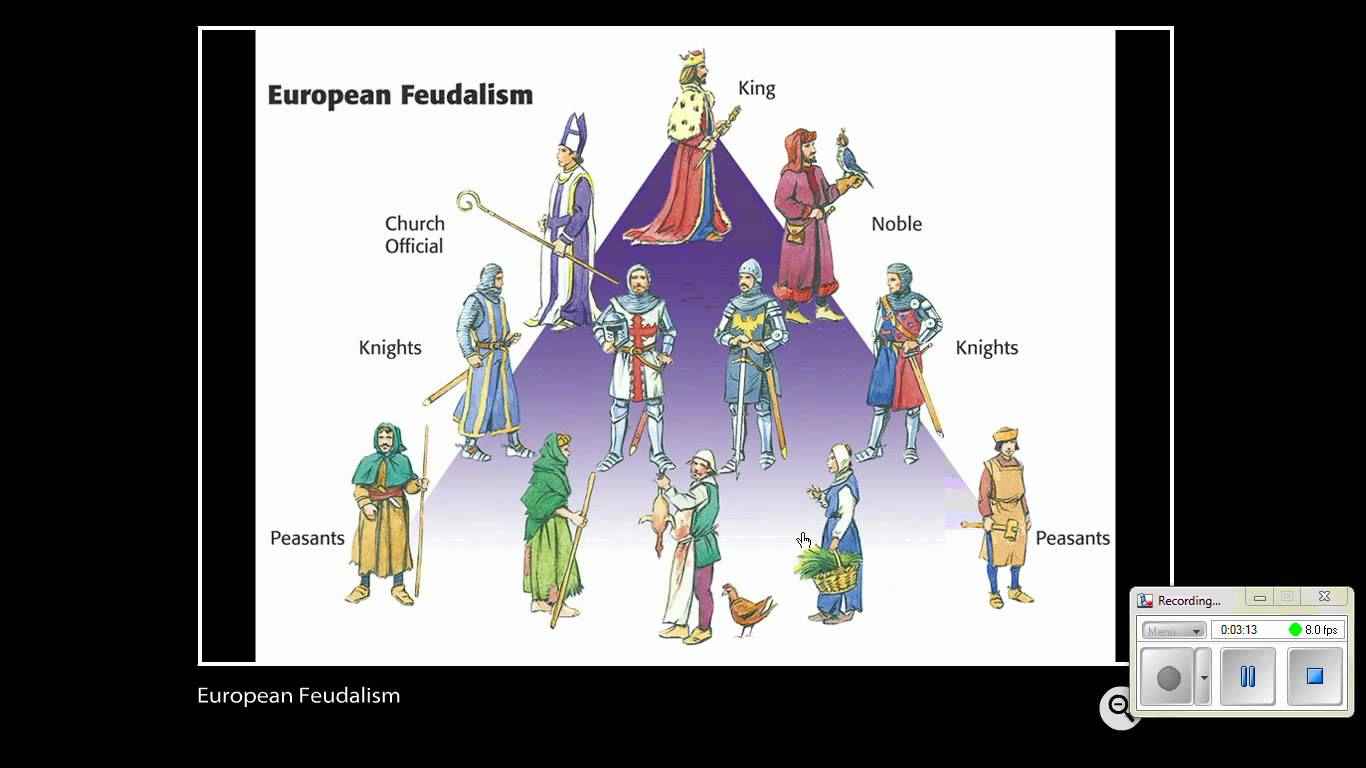Europe passed through lawlessness after the death of Charlemagne. Robbery, instability and social disparity became orders of the day after the fall of Roman Empire.
Taking chance of this lawlessness, the foreign invaders looted different kingdoms of Europe. This created utter helplessness among the subjects.
They now sought the help of powerful men for the protection of their life and property. This gave rise to ‘Feudalism’ in Europe.
Definition of Feudalism:
ADVERTISEMENTS:
Feudalism was a kind of socio-political organisation which arose in medieval Europe and was based on land tenure given by the Lord to the Vassels, who served their masters in varous ways. In other words, feudalism was a part of the feudal society where the subordinate subjects showed loyalty to their Lords and obtained from them a piece of land there by serving their master, in various ways seeking protection from them for their life and property.
Origin:
The origin of feudalism was not sudden. This situation arose in Egypt after the end of the ‘Old Kingdom’. Ancient Greece witnessed this situation during the ‘Age of Homer’. This system prevailed in Roman Society in which the weaker section appealed to the rich people to save them from peril and showed allegience to their masters.
This system was reflected through the procedure of Comitatus. In this system the young fighters engaged themselves in the service of a powerful leader and performed their duty as per the instruction of that leader. In fifth Century A.D. feudalism appeared in the Prankish Kingdom where a bond was created between the ruler and his supporters.
With the expansion of the Frankish Kingdom, feudalism spread to Italy, Spain, Germany and other Countries. Feudalism exerted its influence in the entire medieval Europe.
The Basic Principles of Feudalism:
ADVERTISEMENTS:
Feudalism was based on certain principles. In medieval Europe, the weak and innocent people needed the help of a powerful man. The king was very weak. He could not save his subjects from the plunders of the foreign invaders. So, the common people turned to strong and powerful leaders who were mostly the descendants of the Dukes, Counts and Margraves to make their life and property safe.
The protector was variously known as the ‘Lord’, ‘Liege Lord’, ‘Suzerain’ or ‘Seignior’. The people who sought his protection were called the ‘Vassals’ or ‘Liege-men’. The Lord gave back the plot of land known as Tier to his vassal. In some places, instead of the word ‘fief, the word ‘Feud’ was used from which the term ‘Feudalism’ was derived.
End of Feudalism:
In due course of time, Feudalism lost its relevance for the European countries. The Kings increased their power and gave protection to their subjects. So, the necessity of feudal Lords was not felt in the society. When the lot of the cities improved through trade and commerce, they paid back money to the feudal Lords and became free from them. The great Plague took a heavy total of life in the area stretching from the Mediterranean Sea to the Baltic Ocean.
When there was a shortage of people to perform cultivation work, the feudal Lords were compelled to resort to rearing of sheep. The use of gun-powder made the King more powerful and the feudal Lords could not be a match to them. The invention of printing machine and the progress of education changed the outlook of the people who relegated feudalism to distant background. For these reasons, feudalism in Europe came to an end.
